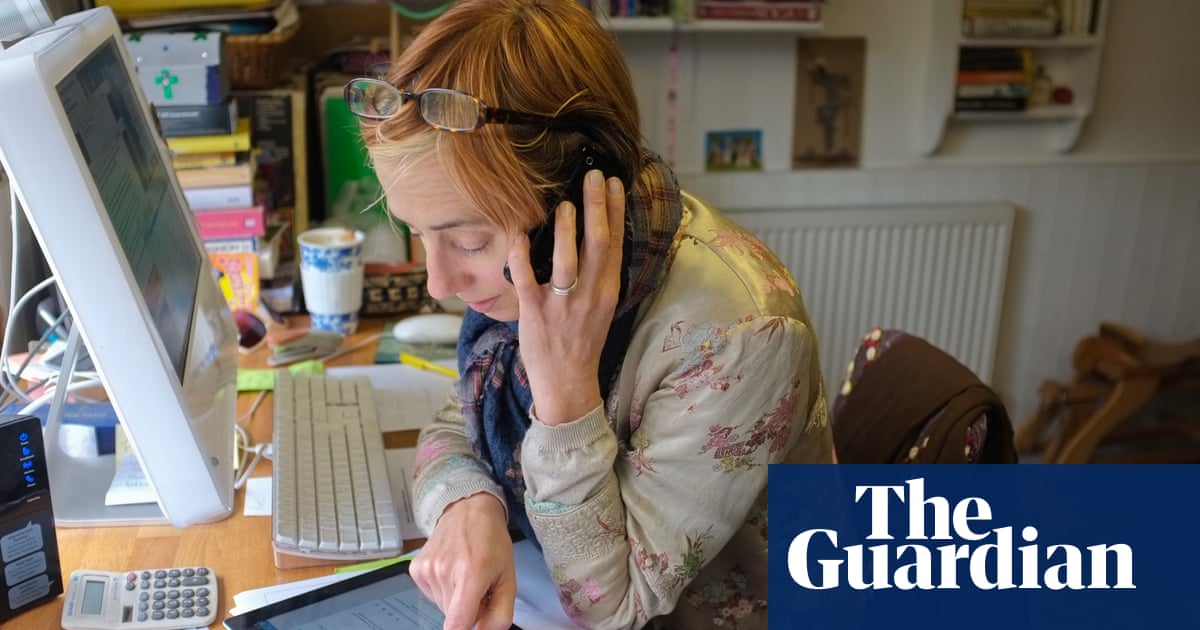
Freedom day is here, at least for those of us who live in England, and we’re back in the place nobody wants to be. On one hand: yay, freedom. On the other: an uneasy sense that the relaxation of restrictions has very little to do with the data, and very much more to do with a government that is bored of imposing Covid-related restrictions.
So we arrive on the unwanted (by me) territory of personal responsibility. Which freedoms should you grab with both hands, which should you foreswear for the time being, which should you exercise caution around? How should informed, polite, civic-minded and reasonable sorts conduct themselves? Expertise provided here is from Greg Fell, the director of public health in Sheffield; Prof Christina Pagel, the director of the clinical operational research unit at University College London, which applies advanced analytical methods to problems in healthcare; and Debora Robertson, the co-author of Manners: A Modern Field Guide.
When should you wear a mask?
“I would say the same as now,” Pagel says, without hesitation. Fell agrees: “In almost all closed indoor spaces.”
Is there any point wearing a mask if no one else is?
Well, it’s complicated. You’re not going to get much protection from a pretty cloth mask if everyone around is breathing freely all over you. Mainly, you’re just offering them a totally unreciprocated defence line against the possibility of your own sneezing. However, “FFP2 and FFP3 masks are actually quite protective,” Pagel says. (These tend to be the white, slightly padded disposable masks, not the blue flimsy ones). “But no, for mask wearing to work at a population level, you need about 70% of people to be wearing them.”
When you continue to wear a mask, you’re not just protecting against infection, you’re contributing to “the positive social norm”, as Fell describes it, making it OK for other people who still want to mask, and reassuring people who wouldn’t feel OK going out if everyone were unmasked.
“Some people want rid of masks,” Fell says. “We’re opening, and that’s a political decision made by the prime minster – whether we like it or not is immaterial. We want to keep our society and our businesses open. We can’t individually prevent transmission at a population level, but we can blunt the virus’s growth.”
How crowded does a train have to be before you put a mask on?
Put one on anyway, unless you’re on your own in a carriage. Supermarkets and public transport are two places that most people can’t avoid going into, however worried about infection they are. They’re also the two places where you know the least about other people’s circumstances. “I can’t imagine anything sadder than being on a tube or a bus, and all the old people are wearing masks when no one else is,” Pagel says.
Should you wear a mask outside?
“There was never really any point wearing a mask outside. We’ve never had an outdoor mask mandate,” Pagel says. It’s not completely hard and fast, she continues. “If you’re in Leicester Square, with thousands of people all singing ‘football’s coming home’, there would be a greater case for wearing a mask, but you’d be quite unlikely to, I think.”
Should you have to explain yourself if you’re wearing a mask in an environment where the majority of people aren’t?
“No,” says Robertson, the etiquette expert. “It’s nobody’s business what decision you’re making. And I think it’s quite rude to interrogate people on why they’re wearing a mask. It’s the equivalent of saying: ‘You’re a bit fat’, or ‘Your eyebrows are funny’. It’s that level of personal remark.”
Should you offer someone a mask if they claim they’re not wearing one because they’ve “forgotten it”?
It really depends on whether you believe them. As a person who constantly forgets their mask, I am inclined to. In that case, Robertson says, “Offer, but a light touch is important. And if they said ‘no’, don’t make a scene out of that. But I would stand well back, probably.”
If you work on a team where some people want to wear masks and some don’t, what should the company policy be?
“Lots of workplaces in Sheffield have erred on the side of caution,” Fell says. “Not at your desk, but when you’re moving around the building, wear a mask. What we can’t do is enforce it.” Pagel emphasises the need for empathy, here. “You don’t know everyone’s home situation, and people who are worried need everyone to be wearing a mask. It’s important not to stigmatise them.”
Should you wear a mask in a taxi even if the windows are open?
You can get surprisingly good airflow in a car with two windows open. But you should think about the driver, who doesn’t really have a choice as to how many people he or she sits very close to every day.
What should you do if you want the windows open and no one else around you does?
“I am a woman of a certain age,” says Robertson, “so I’m constantly opening windows at the best of times. If someone wanted them closed, and was really spoiling for a fight about it, I’d say that’s not really about the window.” There isn’t an easy answer to this kind of confrontation. Except this general rule of Robertson’s: “Have kindness at the front of your mind. For perfectly understandable reasons, we’re all in a state of hyper-awareness as to how other people are going to piss us off. Has she got a mask on, is it over her nose, is he too close to me? People are just doing the best they can, and whatever they’re doing, they’re not doing it to you.”
Is there any point doing a lateral flow test before you meet people?
Recently, thanks to a combination of their high false-negative rate, and the naughty teenagers who faked positive results with lemon juice, lateral flow tests have started to feel a bit pointless. “A negative test isn’t a licence that you’re Covid-free,” Fell says. “But it’s better than not doing any test,” Pagel says, “which has a 100% false negative rate.”
Is it OK to ask people to do a lateral flow test before meeting up with them?
This is almost exclusively a matter of manners, so back to Robertson: “I think that’s absolutely fine. At the moment, we have to be quite explicit about how we navigate this new landscape. British people are not very good at using our words; we expect people to know what we want.”
Is it OK to say no to someone who asks you to do a lateral flow test before meeting up with them if you feel they’re being overly cautious?
Again, that’s fine, but you’re not allowed to be offended if they then don’t want to meet up with you, or insist on meeting outdoors.
Can we start air-kissing and hugging again?
“I’m German,” prefaces Pagel, “I wasn’t a big kisser ever. I’m a handshake woman. But when I do want to hug someone, people who don’t have kids are much safer in my view.” Robertson is double vaxxed and will hug anyone she likes with a similar vaccination status, but with younger people, is more likely to “madly blow them a kiss”. For Fell, “it’s going to be a while before I start doing that again”, but he doesn’t give a read on how much of a hugger he was to begin with. I often ask people directly whether they’re hugging again, to avoid that awkward dance where one person goes in, and the other person dodges, then reconsiders, and you end up doing something nobody intended, like kissing them in their ear. But then, if they say they are hugging again, that can end up in a gigantic hug that doesn’t know where to stop.
How high risk is hugging a child – for you and them?
Fell describes the situation in Sheffield, but it is a similar picture across the country: “Cases are going up exponentially, mostly in the 12 to 45 age group, and of that mostly in the 16 to 30. By the time you get into your 40s, that’s a reasonably well-vaccinated group of people, so there are fewer places for the virus to go.” If you’re going to catch it, it’s more likely to be from a young person, and of that group, children have the most general exposure (at least until this week, when schools break up). The problem is, kids are generally the people it is most fun to hug. If you’re double vaccinated, they’re a bigger risk to you than you are to them, so you can decide whether or not to take your chances.
Should we still be using hand sanitiser?
At the start of the pandemic, public health advice had overestimated the extent of non-airborne transmission, and arguably put too much emphasis on hand-washing. However, “having clean hands is a good thing in and of itself,” Pagel says, and you might save yourself something else, like a gastric bug. Covid isn’t the only infection in the world which will become more and more evident as things open up.
How do you navigate group situations where people have different levels of strictness, about rules and protocols, vaccine efficacy or mask-wearing?
If it’s up to you, try to keep these people apart. If it’s not up to you, try to keep out of it.
If you know someone who has been pinged by the NHS app but ignores it, what should you do?
You have to be sensitive to other people’s challenges: it might be really easy for you to self-isolate, and someone else might be in an insecure job which won’t pay them if they don’t turn up. The furthest I would ever go in interfering with someone else’s self-isolation would be to offer some practical help. Put yourself in their shoes. Ask not for whom the app pings, it pings for thee.
Should you go abroad this summer?
From a health perspective, if you’re double jabbed, you test before you leave, and test when you get back, the risk to you is low, not least because our Covid rates are the highest in the vicinity anyway. From a civic perspective, it’s not ideal: “At a population level, the risk of variation is high at the moment,” Pagel points out, “and we have a duty not to go round spreading Delta everywhere. Not so much Europe as we’ve already given it to them.” Seriously, that was us? “They would have had some seeding events from India. But their Delta surges started a couple of weeks after the Champions League final.” Fell says: “Everyone should come to Sheffield for their holidays. Sheffield’s beautiful.”












